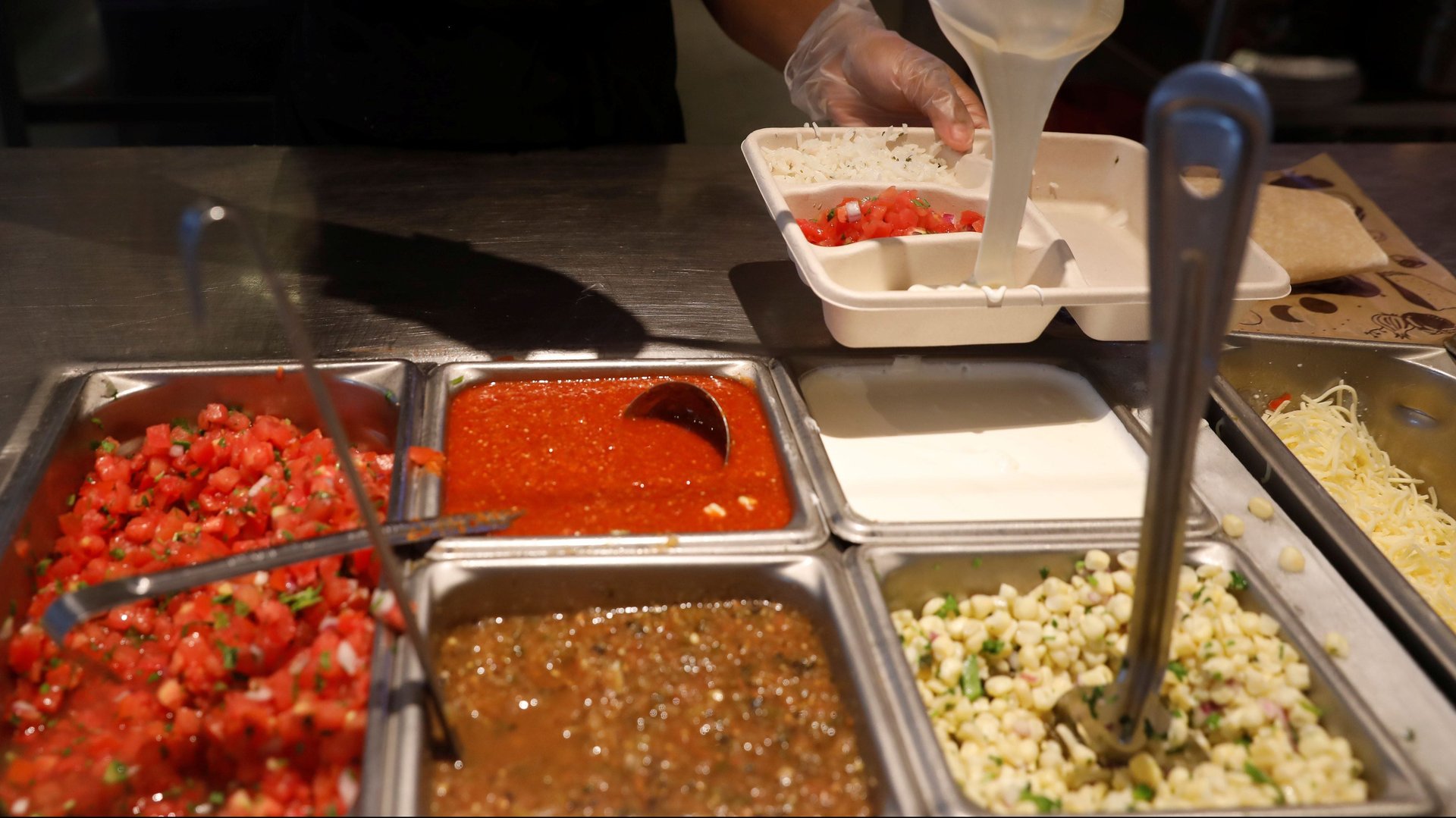Yes, Chipotle has food safety issues. That’s because it serves real food
A Chipotle in Ohio was closed on Monday after hundreds of customers reported symptoms ranging from nausea to fever after eating there. That wasn’t the only food-borne pathogen news of the week, either. A recall on salads sold at Trader Joe’s, and Kroger followed, and McDonald’s admitted to 286 lab-confirmed cases of cyclospora from its Fresh Express salads.


A Chipotle in Ohio was closed on Monday after hundreds of customers reported symptoms ranging from nausea to fever after eating there. That wasn’t the only food-borne pathogen news of the week, either. A recall on salads sold at Trader Joe’s, and Kroger followed, and McDonald’s admitted to 286 lab-confirmed cases of cyclospora from its Fresh Express salads.
The specific pathogen in the Chipotle case has not yet been officially confirmed, but issues with food poisoning have been an ongoing bugbear for the fast-casual Mexican food chain. (We have reached out to Chipotle for comment and will update this post with any response.)
It shouldn’t be surprising. Chipotle’s much-imitated model relies on its promise of serving fresh, cooked-on-the-premises food—burritos, tacos, salads, and rice-and-bean bowls made from non-GMO ingredients and topped with humanely raised meats. The chain caught on quickly in a time when many are trying to cut down on the deep-fried and heavily processed “junk” foods that had long dominated fast food.
But here’s the thing: Minimally processed and uncooked items—all those salads, salsa, and guacamole—are far more likely to spread salmonella and e. coli than anything that sees the inside of a fryer. Fresh vegetables are certainly healthy, but they’re much more likely to carry pathogens like salmonella than highly processed items cooked at high temperatures, such as fast food burgers and fries.
Cooking meat to temperature reliably destroys pathogens, but there’s no corollary protocol for produce, which is particularly problematic for ingredients like leafy greens, when they’re served raw. Washing can help reduce the likelihood of infection, but unlike blasting food with high heat, it’s no guarantee.
“In some instances you can use a solution of iodine or bleach,” to clean fruit and vegetables says Marc Bauer, Senior Director of Culinary and Pastry for the International Culinary Center. “But you know, you don’t want to bleach your food.”
The promise of fresh, minimally processed ingredients is one of Chipotle’s major draws and many of their restaurants feature semi-open kitchens, where employees grill chicken breasts or pit avocados in plain view. It drives home the message—this is a place where real food gets cooked.
That’s an important distinction in the fast food market, where the vast majority of chains purchase frozen, highly processed meal components that have been processed at high heat, flash frozen, and then are reheated in a steam drawer, fryer, or oven. Most fast food has been through several rounds of pathogen-killing treatments by the time it gets to your tray.
That’s why although your fries are far from healthy, they’re very, very unlikely to make you sick. The fresh salsa at Chipotle on the other hand never sees heat, and all the hands cutting all those tomatoes, cilantro, onions, and limes create a perfect environment for cross-contamination. The Minnesota Health Department confirmed that in 2015, tomatoes were the culprit in a salmonella outbreak that affected more than 20 Chipotle locations around the state.
Put simply, fresher food, touched by more humans (potential carriers of pathogens and viruses), and not subjected to bacteria- and virus-killing heat, is more likely to make you sick. That’s also why you sometimes get sick eating food prepared in a home kitchen—including your own kitchen.
None of this is to say that Chipotle should stop making fresh salsa, or that a burger is a better choice for lunch than a salad. The CDC estimates that there are about 76 million cases of food-borne illness each year, but a very, very small number of those result in death, about 5,000 total. Chances are, you will get food poisoning at some point, but it’s extremely unlikely to do long-term damage. In contrast, a quarter of all deaths in the US every year can be attributed to heart disease, according to the CDC, which names obesity, high cholesterol, poor diet, and diabetes as risk factors.
Every time you put food in your mouth, you take a risk. So what’s a person to do? ”Eat fresh food. Don’t be scared of salad,” says Bauer. “Don’t eat processed food, which is worse for the long term.”